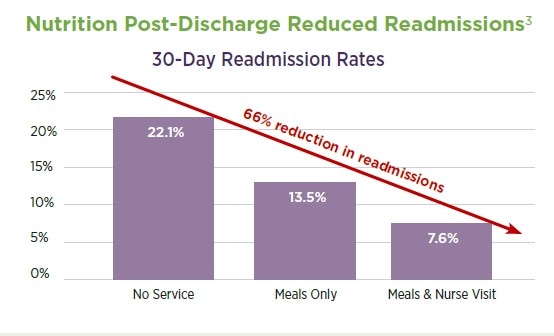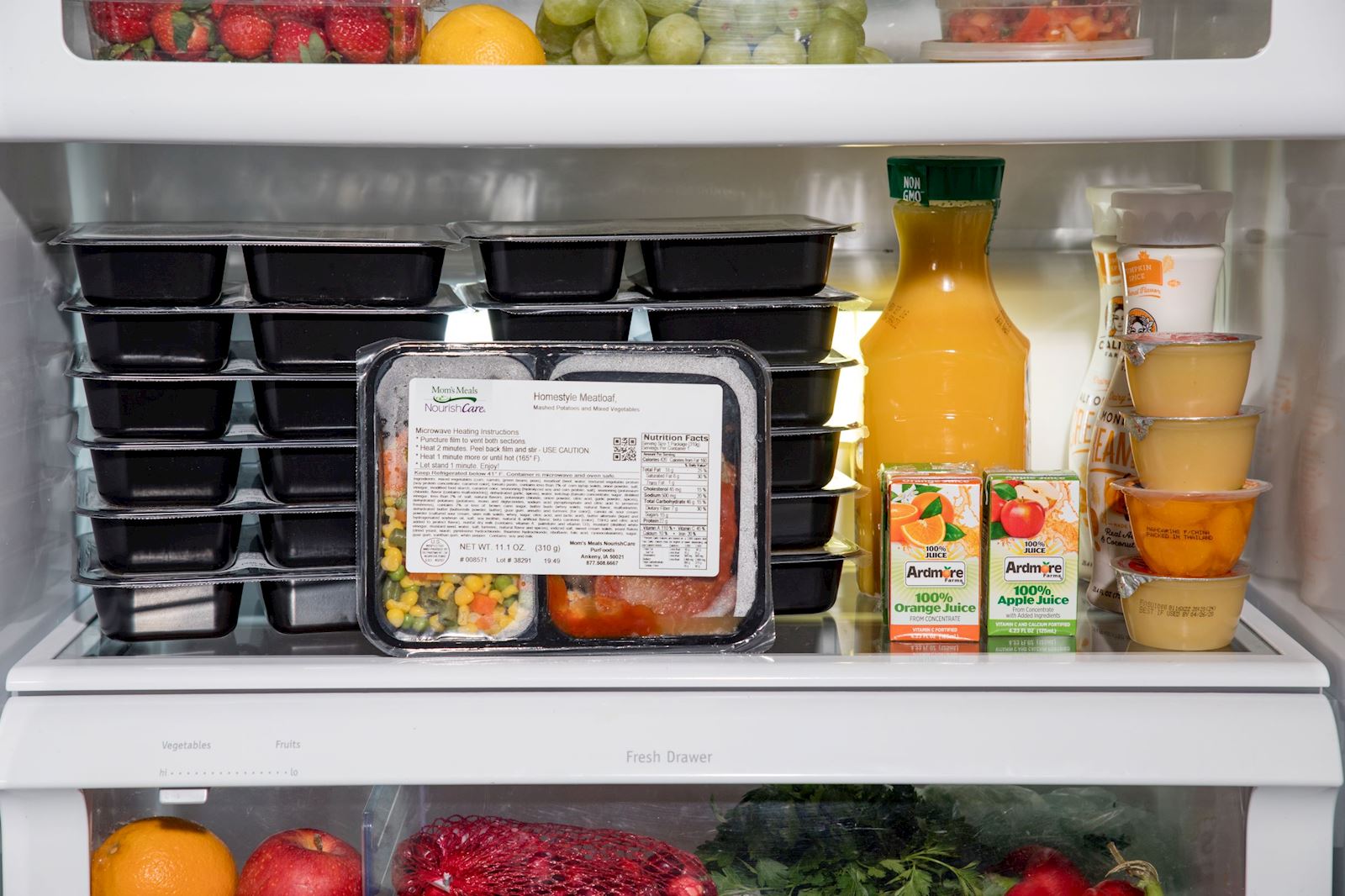Home sweet home. It seems home gets sweeter as we get older. A recent AARP study reports that almost 75% of senior citizens want to “age in place,” or stay in their homes through their golden years.
That’s caused a boom in the home health sector. There are more than 3,000,0001 home health caregivers, ranging from nurses to aids to caregivers, who make it possible for many seniors to stay at home as they age. They manage a range of Activities of Daily Living (ADLs) including assisting with bathing, dressing, cleaning, and meal preparation.
Of the ADLs, meal prep takes the most time. It’s also one of the most important things a home care professional does because consistent access to good nutrition is critical to keeping senior citizens healthy and out of the hospital. But providing nutritious meals, including menu planning, grocery shopping, cooking, and serving food takes many hours a week. That cuts into the time caregivers have for other ADLs. Plus, many of them aren’t trained to accommodate different dietary restrictions such as a low-sodium diet, a gluten-free diet, or physical limitations like oral health issues that make it painful to chew.
Better together: Home-delivered meals and home care
Given the demands of meal planning and prep, many families, health plans, and agencies are using a hybrid model that combines home meal delivery with home health care. Meal delivery services free up caregivers to provide more focused personal care such as managing medications, assisting with mobility, supporting physical therapy, and providing much-needed companionship for seniors living alone.
Plus, home delivered meals offer:
- Balanced nutrition designed to combat malnourishment and help manage chronic conditions
- Meal choices to help preserve dignity and independence, and encourage meal consumption
- Convenience – most home delivered meals can be heated quickly in the microwave
- A strong return-on-investment – studies show that better nutritious reduces hospital admissions and readmissions, and lowers length of stay in an inpatient facility
- Budget friendly meals, both for those who pay out-of-pocket, as well as through a health plan or government-sponsored program
This hybrid approach is convenient, can be affordable and research supports its benefits. A study by FMQAI shows that 30-day readmissions rates to hospitals drop by 66% when the patient has a combination of in-home support and home delivered meals.2

The combination of home health care and home delivered meals for seniors aging in place also supports other intangible, but valuable, benefits for clients, particularly when it comes to the amount of quality time a caregiver can spend with the client. By reducing daily meal prep time to just minutes a day, without compromising nutrition, caregivers can focus their attention on the client’s other needs, like companionship, that improve quality of life and make home even sweeter.
Mom’s Meals® delivers refrigerated, condition-specific meals to homes nationwide.
- BLS - https://www.bls.gov/ooh/healthcare/home-health-aides-and-personal-care-aides.htm
- FMQAI, the Medicare Quality Improvement Organization of Florida under contract with the Centers for Medicare & Medicaid Services



